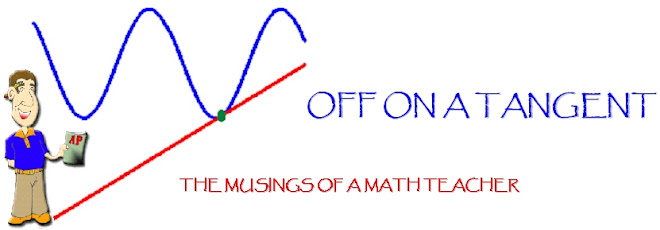 I just read an interesting article about the origins of the space race, and how it influenced public education here at home. 1957 was a wake-up call for America. The Soviet's successful launch of the first artificial satellite into orbit became the impetus for a change in science and math education in the United States. In an act of perhaps fear, embarrassment, and pride, America took steps to secure their future as the leaders in the space and technology race.
I just read an interesting article about the origins of the space race, and how it influenced public education here at home. 1957 was a wake-up call for America. The Soviet's successful launch of the first artificial satellite into orbit became the impetus for a change in science and math education in the United States. In an act of perhaps fear, embarrassment, and pride, America took steps to secure their future as the leaders in the space and technology race.Today, however, we are losing the race, and there may be no catching back up. Public officials and bureaucrats pay lip service to bettering our public education, but their actions (and spending) show that our nation's priorities lie in other domains. International and Galactic peace keeping is a very important and noble goal, it's nice not to have to worry about a bomb falling on your head while you are trying to solve a differential equation, but I think we as a nation are merely reacting, rather than responding, to the fact that our nation's 15-year-olds rank 24th in the world in mathematical literacy. We talk of improvements, a better education for all, and leaving no child behind, but band-aids cannot stop a sucking gut wound. Remediation has become our curriculum. It's almost like our philosophical vision has become "the faster we fall behind, the more time we have to catch up!" We're going to need a lot of time a the rate we're heading.
Mandates, edicts, decrees, and other trickle-down orders for academic improvement do not empower teachers or students in the classroom to actually meet the demands the bills spell out. You cannot legislate excellence. It must be built up over time through training that actually reinforces content and that repose educators with a sense of professionalism. This is not happening, as much of the training of teachers happens on the local level and which focuses on abstruse, theoretical, platitudinous, double-speak, but not necessarily any practical, helpful information that comes first-hand from experts in specific disciplines.
As a math teacher, I want to know more about mathematical underpinnings, concepts, history, and subtle connections among topics that will help me better understand the big picture of mathematics and how it fits into the curriculum at each level. I'd also be a captive listener to any discussion on proven methods of instruction or proven mathematical programs. What I DON'T need is any more paperwork that documents my efforts to remediate the worst students or any information that targets improvements specifically in the very worst cases. I'm not interested in the latest medical diagnosis that gives a student another excuse to be mediocre (such as caffeine-induced insomnia--duuuh), or the latest label for special students that allows them to get by with less. If that's the way we are heading, we'll ALL soon have a special label that requires private treatment--in this is PUBLIC education.
If public education is going to be so compartmentalized and specialized, where an increasing amount of responsibility is falling into the teacher's court, while less and less is required of the student, we are going to see it get a lot worse before it ever possibly gets better. This is the trend that I have seen in the last 8 to 10 years. With all the new paperwork, documentation, IEPs, 504s, IPGs, and countless other cute acronyms that require reams and quires of paper to fill out, I'm starting to personally feel that I am transitioning from being a mathematics teacher to a bookkeeper with bad math jokes. It's no wonder why, in 2003-2004, more than 8 percent (269,000) of the nation's teachers left the profession. Of these, 56% (150,640) did so to pursue another career or because they were dissatisfied, disgruntled, or just exhausted.
This is a costly consequence of where our schools are heading. I believe the solution to restoring America's place in the scientific and mathematical elite of the world comes down to the proper training, recruitment, and retention of qualified teachers who specialize in their subject area. That is, a math teacher has at least a bachelor's degree in Math, with a desire for advanced degrees. It seems like everyone is an expert in pedagogy and teaching methods these days (or at least has an opinion about it), but many teachers in secondary education are teaching courses they are either not certified in, are not comfortable teaching, or lack even a minor in their area. In order to stop the "sucking gut wound", there needs to be a serious investment in the education of teachers that goes beyond staff or professional development training. Teachers must become absolute experts in their content area. All it takes is appropriating the money to treat the disease and not the just the symptoms.
So what must we remember from Sputnik? Building teachers up so that they can build up their students just makes sense. Expert teachers who can inspire future generations with the passion, vision, skills, and the realization of the importance of math in solving many of society's problems (many of which we haven't yet encountered), should be the primary educational priority to safeguard the future of our great nation.






No comments:
Post a Comment